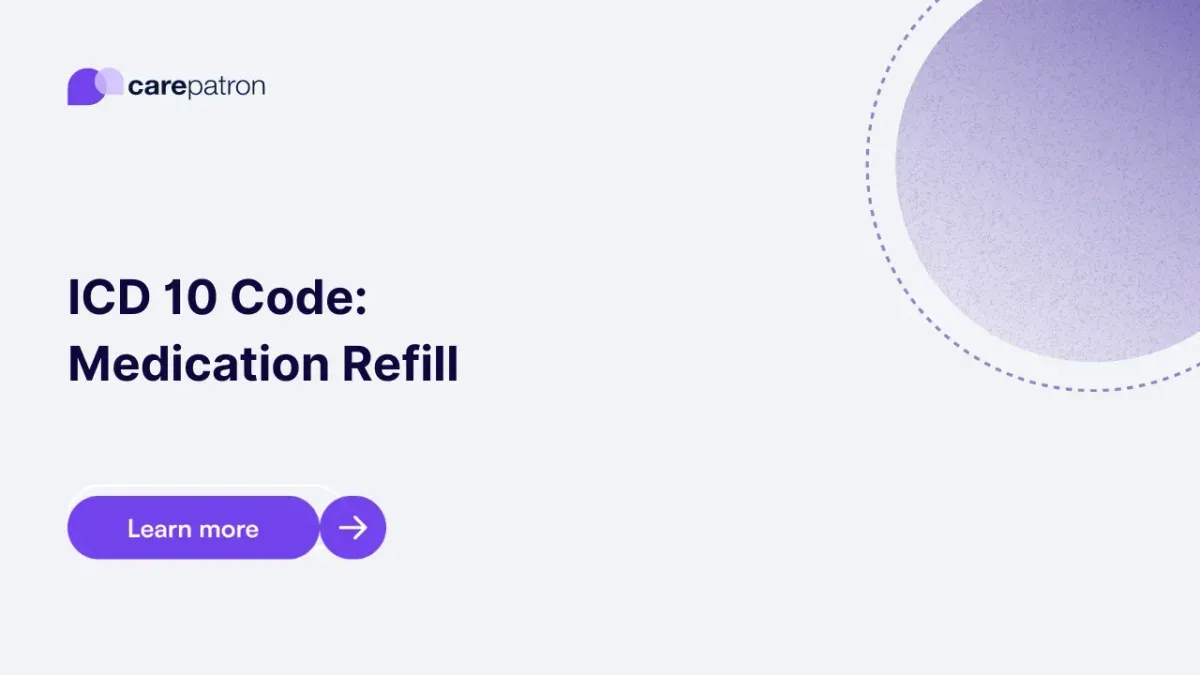
Medication Refill ICD-10-CM Codes | 2025
Explore ICD-10 codes for medication refills, including Z76.0 and supportive long-term therapy codes. Learn billing rules and documentation best practices.
Use Code
Commonly asked questions
Use a medication refill ICD code, such as Z76.0, when the primary purpose of the healthcare visit is to renew a prescription without significant changes to treatment. These codes help document encounters focused on maintaining a patient's medication regimen or evaluating long-term drug use.
Most medication refill-related ICD-10 codes are not independently billable, as they are considered supportive or secondary diagnosis codes. However, Z76.0 is billable and can be used when the sole purpose of a visit is to repeat a prescription or to manage medication.
Common treatments involve continuing the current medication plan, monitoring for side effects or complications, and updating prescriptions based on patient response. Providers may also adjust dosages, switch medications, or offer education to improve adherence and health outcomes.
EHR and practice management software
Get started for free
*No credit card required
Free
$0/usd
Unlimited clients
Telehealth
1GB of storage
Client portal text
Automated billing and online payments
